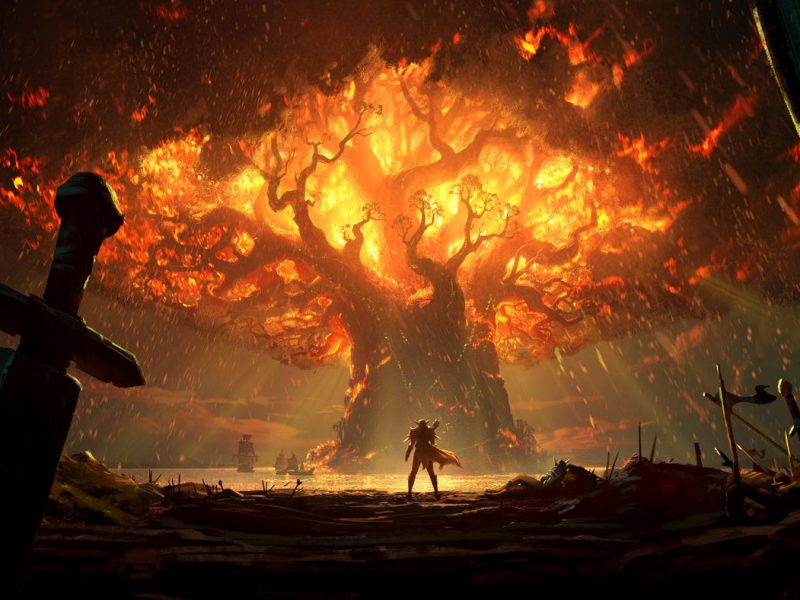
How Games Tell Tales, Part 6: The Beginner’s Guide, Author, Audience, And Owning The Story
In this sixth edition of How Games Tell Tales, I will discuss how the Beginner’s Guide treats the tension between authors and their audience, through a story in which a developer’s games get interpreted.
Read More
How Games Tell Tales, Part 5: Bloodborne and Imagined Narratives
In this fifth instalment of How Games Tell Tales, I will discuss how games can tell stories without actually telling a story at all. I will explore how a game such as Bloodborne can create a narrative that players collectively imagine through exploration, vague hints, and atmosphere.
Read More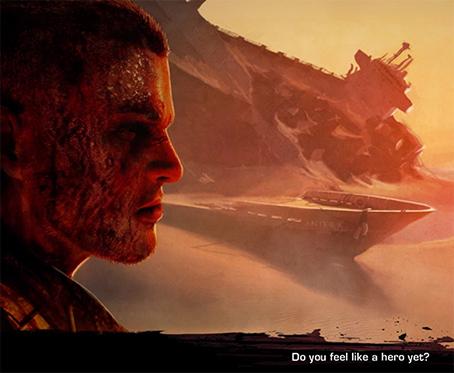
How Games Tell Tales, Part 4: Unreliable Narration, Militainment, and Spec Ops: The Line
In this fourth installment of How Games Tell Tales, I will discuss how games portray unreliable narration. Using Spec Ops: The Line as an example, I will show that the hyperreality of video games influences how an unreliable story can be experienced. I will also discuss the criticism this game has of military entertainment.
Read More
Detroit: Become Human and its Problematic Relation to History
This article is a continuation of the last article on Detroit: Become Human. In it I explore the game’s controversial relation with references to historical forms of oppression, as well as the lead developer’s (lack of) answers to this situation.
Read More
How Games Tell Tales, Part 3: Detroit: Become Human, Freedom of Choice, and Intended Play
In this third installment of How Games Tell Tales, I will discuss games that offer a large amount of player input. Using Detroit: Become Human as an example, I will explore how such choices can work, how most choices are not as meaningful as they seem, and how this intertwines with the concept of intended play.
Read More
How Games Tell Tales, Part 2: Nioh and Historical Simulation
In this second installment of How Games Tell Tales, I will discuss a particular aspect of video games: simulation. By using some theories on historical simulation, I will use Nioh as an example of how games can represent history and mythology.
Read More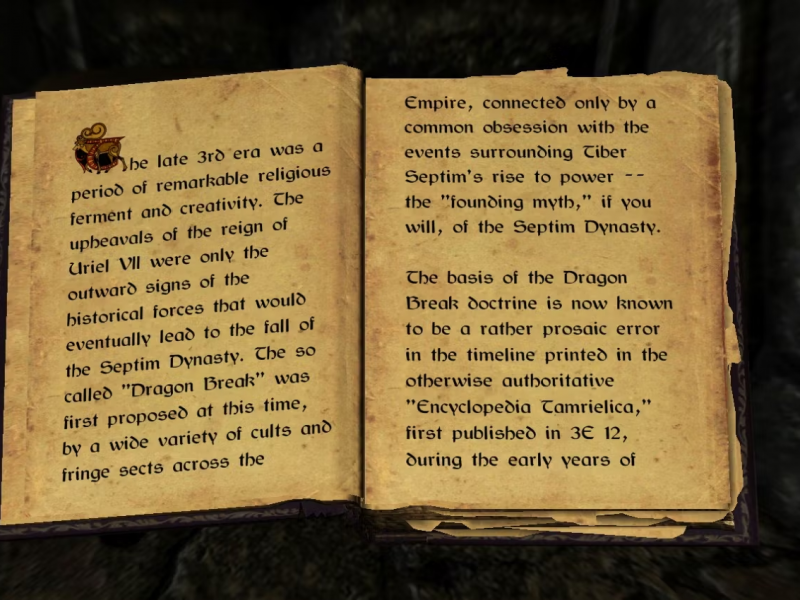
To Be Continued…..as a Movie: Games and Transmedia Storytelling
While video games are a unique narrative medium, they have plenty in common with media like movies and books. So much in common, in fact, that they can tell the same stories, in a style of storytelling that is referred to as transmedia. But what is transmedia storytelling?
Read More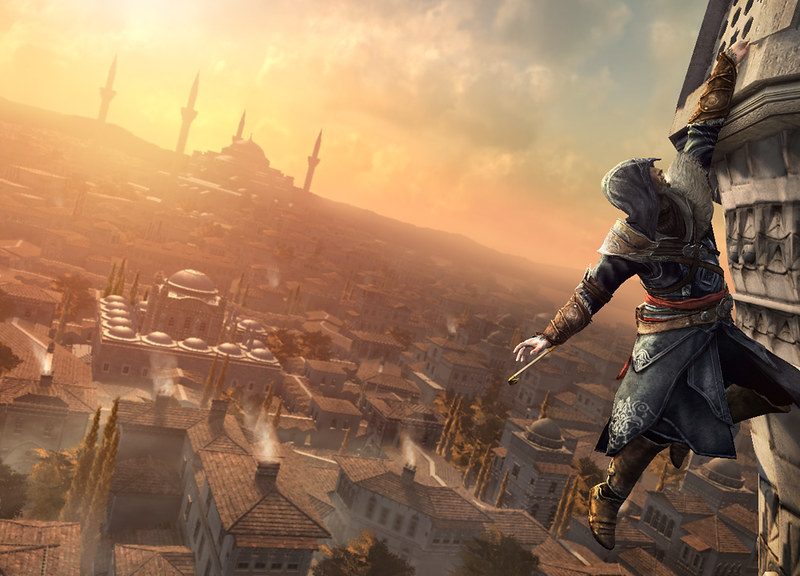
Videogames and Global Power Inequalities
Video games are a global phenomenon. As discussed on this website before, many Western made video games propagate certain tropes and prejudices about non-Western cultures and histories. Even though there is a large world of non-Western developers, they seem unable to challenge the Western-dominated field. Marcel Keurentjes analysed this inequality of power in video game development in his Master Thesis at Leiden University. This piece is a summarized version of his work.
Read More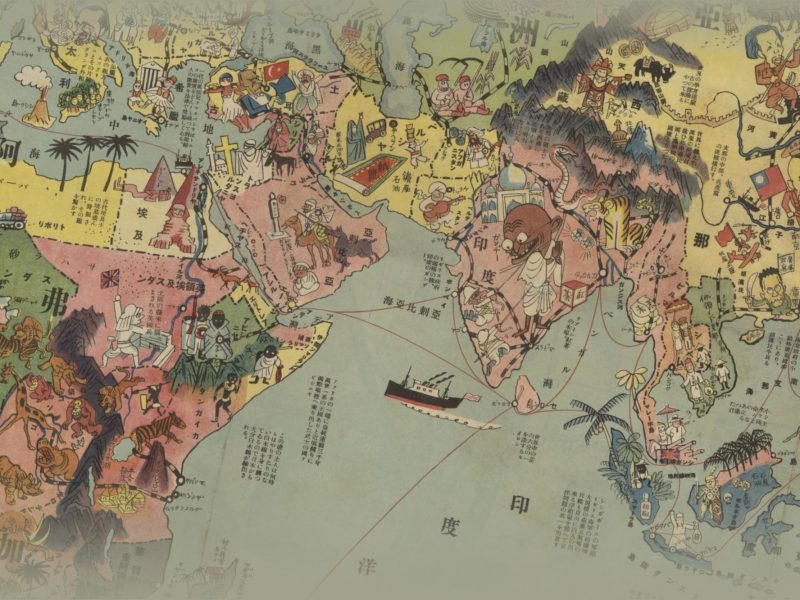
Understanding Alternative Histories: The Ethiopian Japaniser Movement
This fourth article in a series of deep dives into alternative historical depictions of Africa and Colonialism in video games focuses on Ethiopia. In its quest for modernisation, Ethiopia looked east to Japan and the Meiji movement. The Historical Flavour mod for Victoria II simulates Ethiopia’s development throughout the nineteenth and twentieth century. How is the legacy of the Japaniser Movement represented?
Read More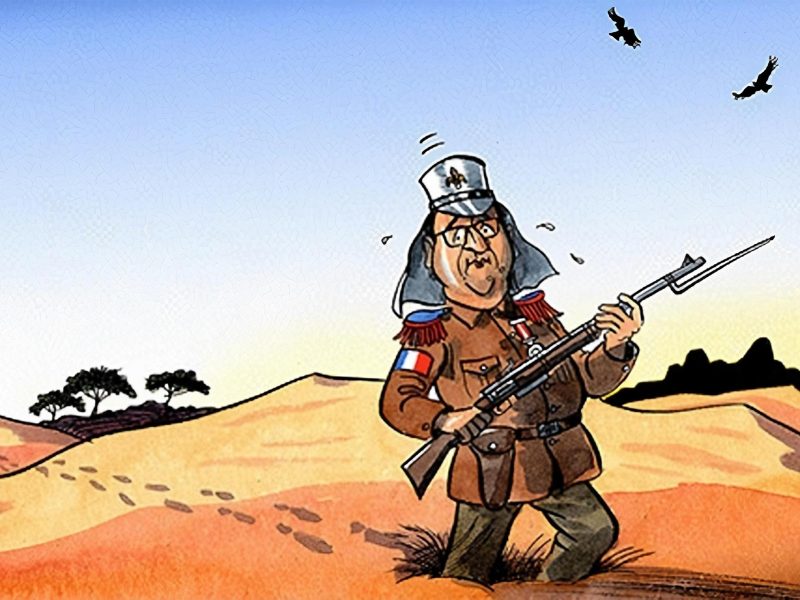
The Alternative History of Neocolonialism
This third article in a series of deep dives into alternative historical depictions of Africa and colonialism in video games focuses on post-colonialism. The end of formal colonialism marked the beginning of neocolonialism. A Victoria 2 mod set in the Cold War simulates this with a system of economic spheres of influence. How does it affect Africa?
Read More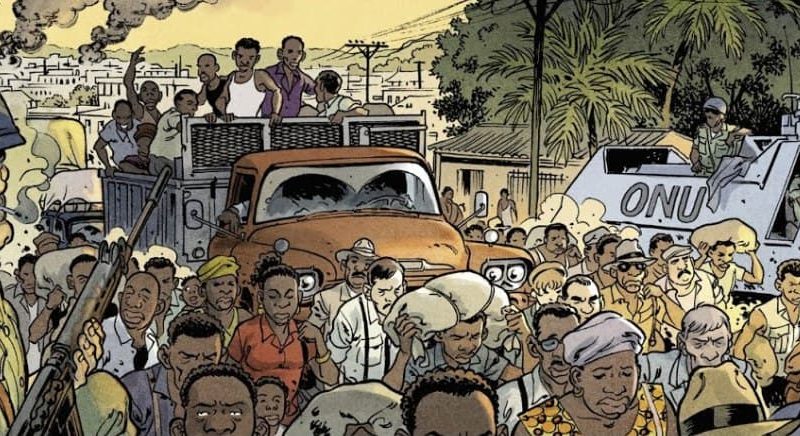
Understanding Alternative Histories: Katanga
This second article in a series of deep dives into alternative historical depictions of Africa and Colonialism in video games focuses on Congo. Following the independence of Congo in 1960 its southernmost province of Katanga broke away as its own republic, receiving heavy Belgian and mercenary support. A popular Hearts of Iron IV mod set in the 1960s depicts an alternative Katanga. How does it fare?
Read More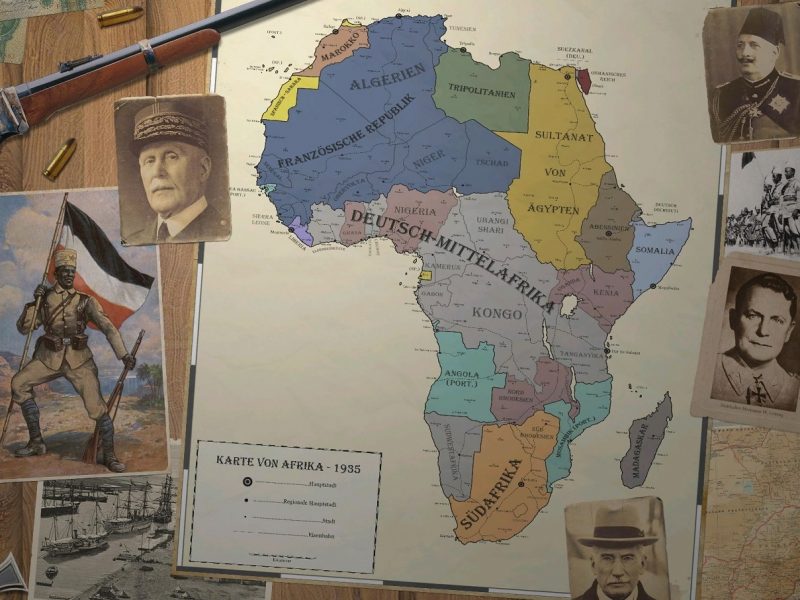
Understanding Alternative Histories: Mittelafrika
This article is the first in a series of deep dives into alternative historical depictions of Africa and Colonialism in video games, primarily games by Paradox Interactive. In many popular Hearts of Iron IV mods, Germany controls large swathes of Africa as colonies. How would this colonial entity operate, and could it even exist the way it does in those mods?
Read More
Assassin’s Creed Valhalla: A (mostly) Spoiler-Free Review
We asked Liam McLeod to write a review of Assassin’s Creed Valhalla for us. He’s one of our beacons when it comes to medieval England, so he’s bound to have some good opinions on the game. Liam mainly discusses the landscape and the larger narrative, so no worries about (big) spoilers!
Read More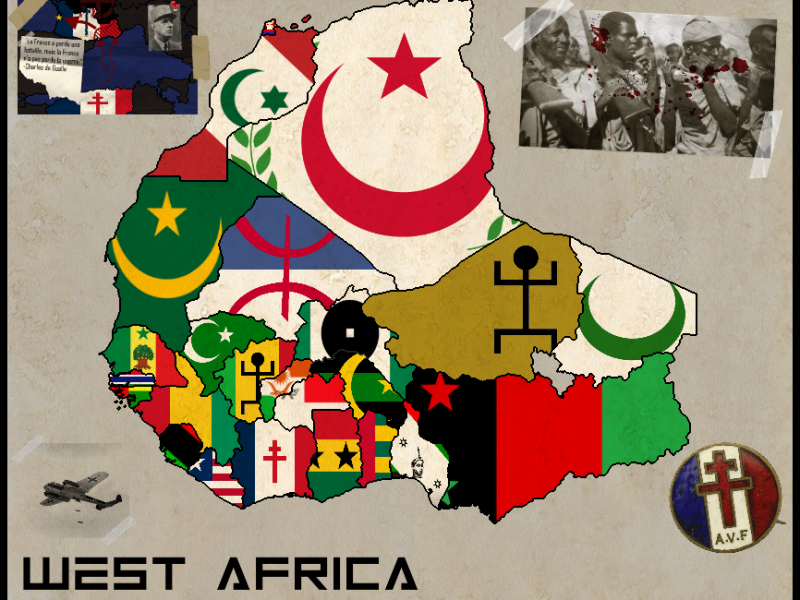
The Value of Alternative History
“What-if” history tends to get a bad reputation in the world of academia for being imprecise and subjective, yet the process behind making alternative history models for video game scenarios can be as complex as any proper research. How does alternative history benefit the gaming experience and how are these scenarios made?
Read More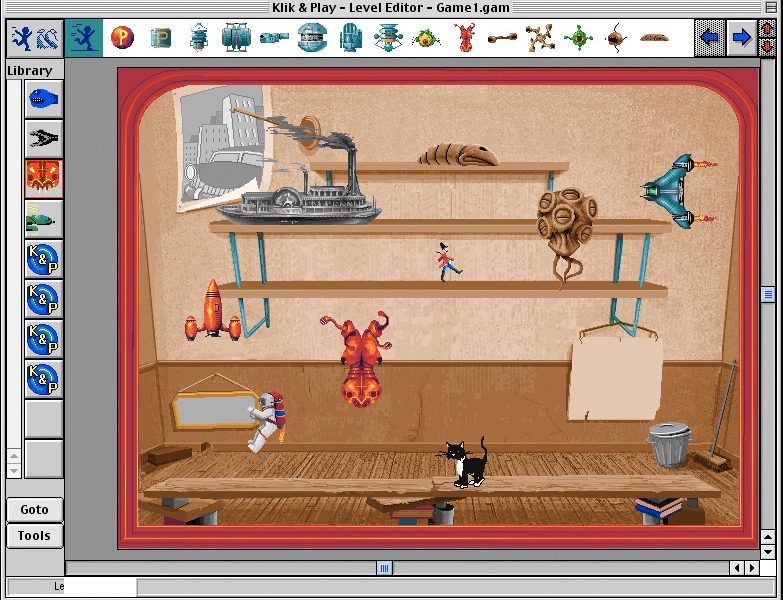
Recreating two of my 1994 homebrew games
Martine Mussies presented at TIPCO2, where she told us a lot about Alfred the Great in video games. Martine also wrote a piece on the video games creations she made in her childhood, reflecting on how these are different than in adulthood.
Read More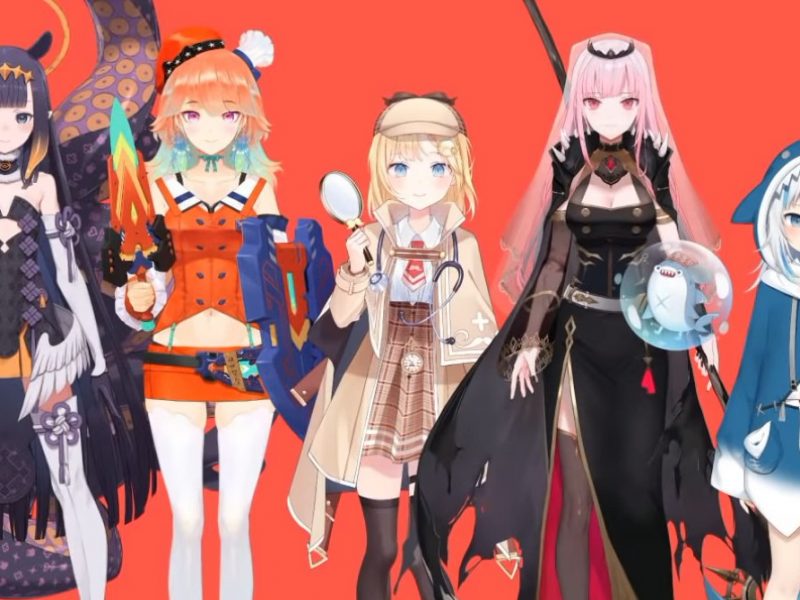
The advance of new idols: VTubers
We will be taking a look at the interesting new world of VTubers; online entertainers in YouTube videos or streams, usually portrayed by anime-inspired characters. Where do they come from, what do they do and what can we expect from them?
Read More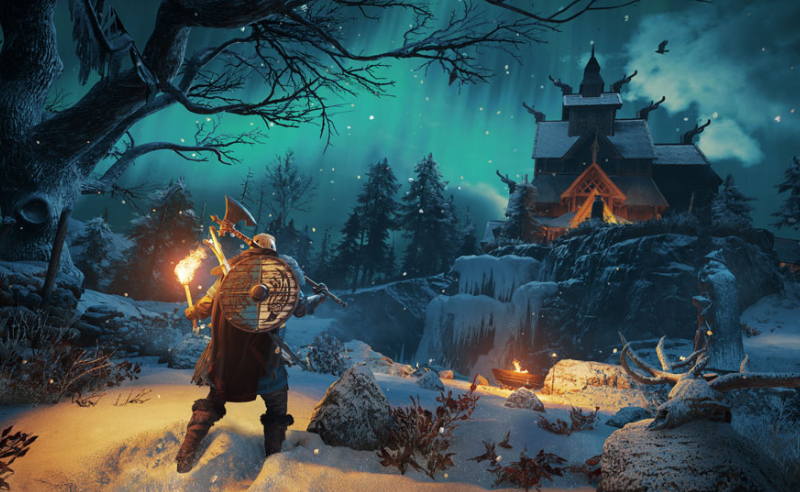
Assassin’s Creed Valhalla: Unpacking an Age
With Assassin’s Creed: Valhalla just around the corner, Liam McLeod talks about historical accuracy in the game. But aside from pointing out what Valhalla got right and wrong, there is a lot more to unpack. How does Valhalla repeat nationalistic narratives? And should developers take more care with their histories? Liam touches upon all that below!
Read More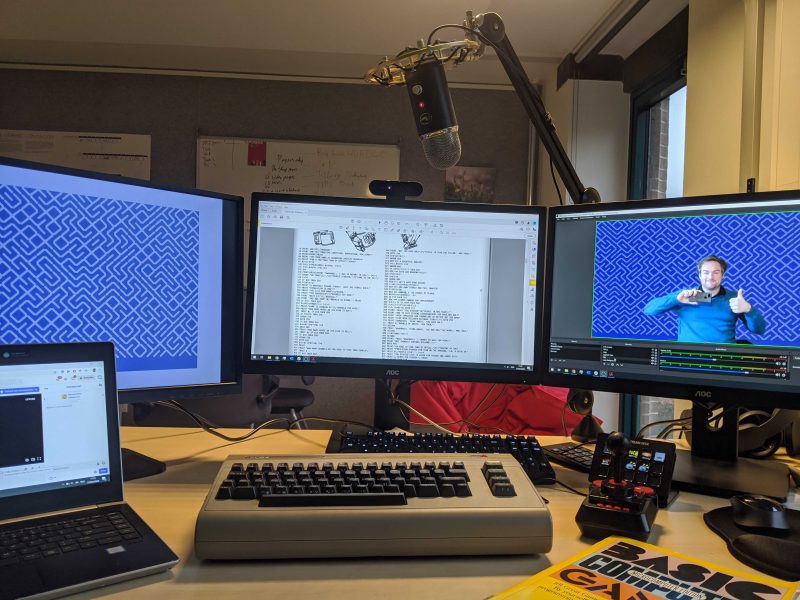
Streaming the Past: Hamurabi
On 28-2-2020 we will be or have been (Hellooooo, future people!) streaming the oldest video game set in the past. Like any cool piece of history it goes under many names: The Sumerian Game, King of Sumer, The Sumer Game, Hamurabi, HMRBI, HAMURABI, and Hammurabi. This game feels almost as old and foundational as the … Read More
Read More
Exploring contemporary archaeology with The Last of Us
(Warning: This article is about the Naughty Dog The Last of Us, it contains narrative and ending spoilers) The Last of Us shows human society severely decimated by the Cordyceps infection, a fungal pathogen that attacks insects but manages to jump onto human hosts. Metaphorical in nature the infected represent “the dying remnants of a … Read More
Read More